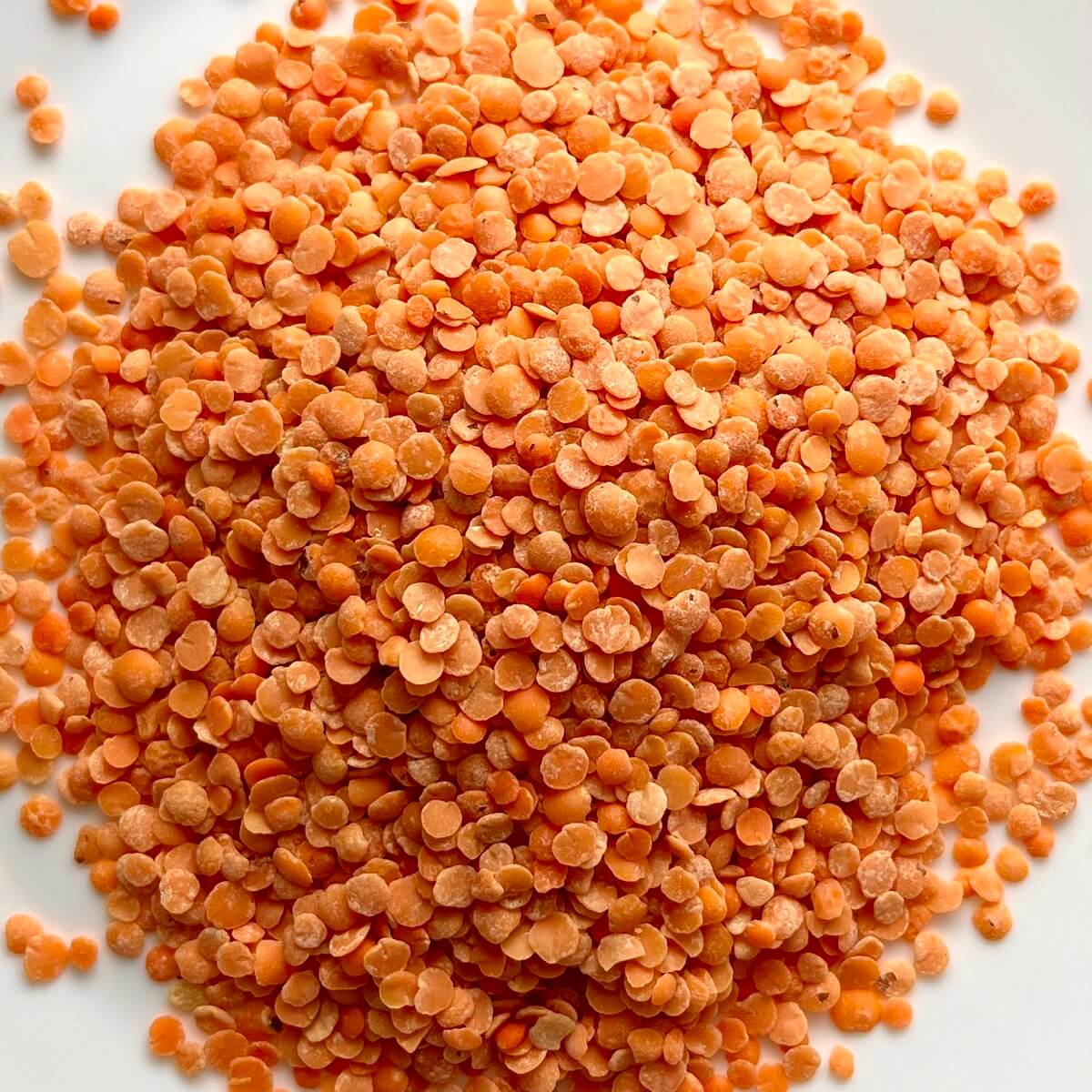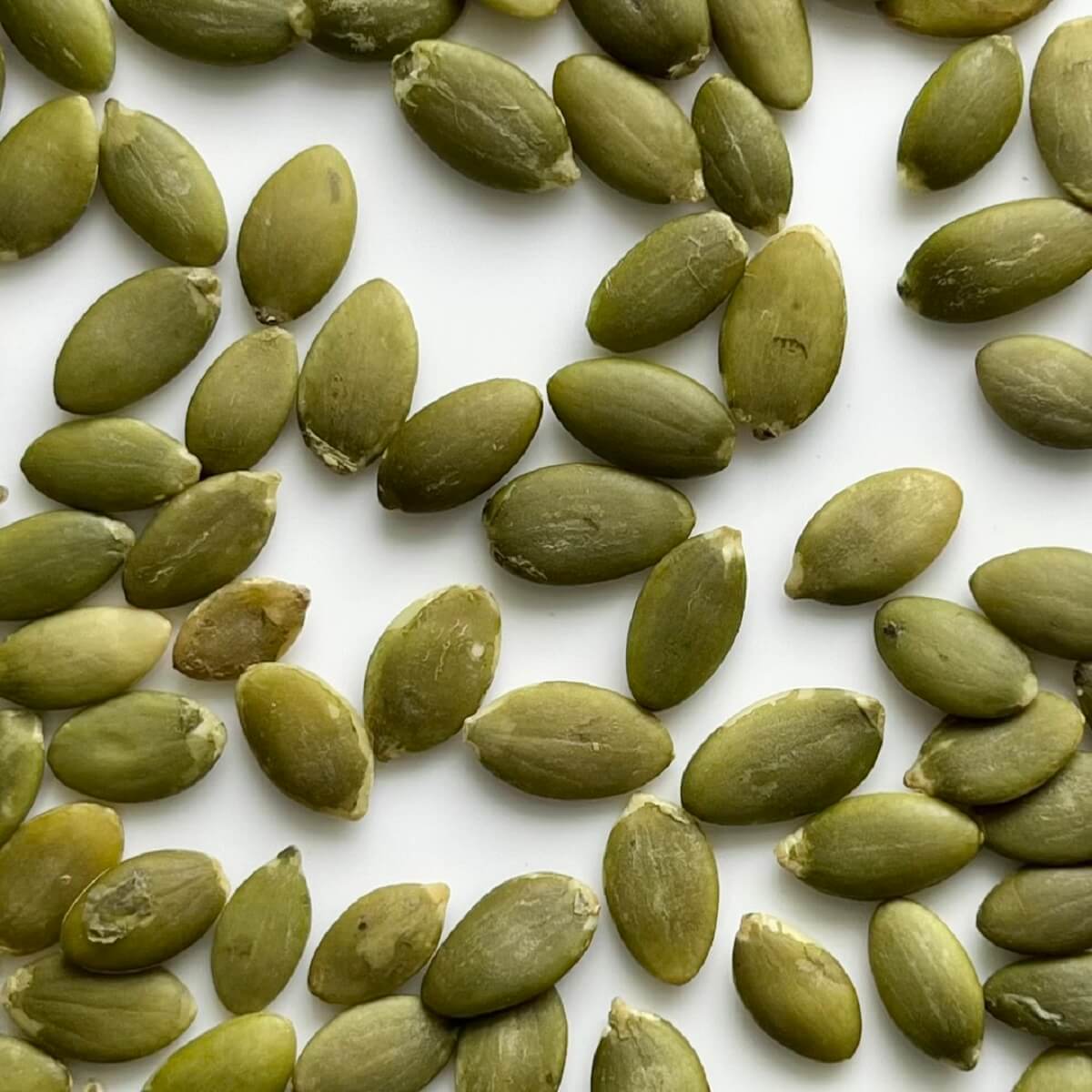Learning which foods are good vegan sources of lysine can be helpful if you’re following a plant-based diet. While animal products often contain more lysine than plant-based sources, there are still plenty of delicious lysine-rich vegan options such as tofu, tempeh, quinoa, and legumes.
Lysine is an essential amino acid that plays an important role in protein synthesis. Here’s a list of vegan lysine sources to incorporate into a balanced diet:
1. Tempeh

Tempeh is a fermented soy product that contains a substantial amount of lysine. It’s a great addition to plant-based diets. Incorporating tempeh into your meals can definitely contribute to meeting your lysine requirements.
Tempeh Lysine Content
According to the USDA National Nutrient Database, tempeh contains 0.908 g of lysine per 100g.
2. Tofu
Tofu is one of my favorite vegan sources of lysine. It’s versatile and can be included in various savory or sweet dishes to boost your lysine intake.
Tofu Lysine Content
According to the USDA National Nutrient Database, firm tofu contains 0.883 g of lysine per 100g.
3. Lentils

Lentils are another great option. They’re packed with plant-based protein and are a great addition to a wide variety of dishes such as soups, stews, and salads. Adding lentils to your meals provides a lysine boost in addition to various nutrients and fiber.
Lentils Lysine Content
According to the USDA National Nutrient Database, cooked lentils contain 0.63 g of lysine per 100g.
4. Edamame
Edamame are young soybeans that have been harvested before ripening. They’re another excellent vegan source of lysine. Add edamame to salads, stir-fries, or just have them on their own as a snack. They’re a delicious way to increase your lysine intake while following a plant-based diet.
Edamame Lysine Content
According to the USDA National Nutrient Database, edamame contains 0.745 g of lysine per 100g.
5. Quinoa
Quinoa is a nutrient-dense pseudo cereal that contributes to lysine intake. It’s aldo a complete source of protein which makes it a great addition to a plant-based diet. Quinoa makes a great side dish or you can add it to salads, soups, or taco fillings.
Quinoa Lysine Content
According to the USDA National Nutrient Database, cooked quinoa contains 0.239 g of lysine per 100g.
6. Chia Seeds
Chia seeds are a good source of lysine, omega-3 fatty acids, and fiber. Including chia seeds in plant-based dishes such as smoothies, puddings, or as a topping for salads is a great way to boost lysine intake.
Chia Seeds Lysine Content
According to the USDA National Nutrient Database, chia seeds contain 0.97 g of lysine per 100g.
7. Hemp Seeds
Hemp seeds are an excellent vegan lysine source. If you have trouble finding them at your local grocery store, then try health food stores or order them online.
Hemp Seeds Lysine Content
According to the USDA National Nutrient Database, hemp seeds contain 1.28 g of lysine per 100g.
8. Pumpkin Seeds

Pumpkin seeds, also known as pepitas, are another good plant-based option. I like to sprinkle them on salads or just grab a spoonful for a quick snack.
Pumpkin Seeds Lysine Content
According to the USDA National Nutrient Database, pumpkin seeds contain 1.39 g of lysine per 100g.
9. Black Beans
Black beans are a tasty addition to vegan diets and provide a good source of lysine. Black beans can be incorporated into a wide variety of dishes such as salads, soups, and burritos.
Black Beans Lysine Content
According to the USDA National Nutrient Database, black beans contain 0.608 g of lysine per 100g.
10. Amaranth
Amaranth seeds are another good vegan lysine source. Incorporate amaranth into meals like porridge or salads. Or try baking with amaranth flour to give your baked goods a lysine boost.
Amaranth Lysine Content
According to the USDA National Nutrient Database, amaranth grains contain 0.747 g of lysine per 100g.
11. Peanuts
Peanuts are a great vegan lysine source. Enjoy a handful as a snack, in nut butter form, or sprinkled on various dishes such as noodles.
Peanuts Lysine Content
According to the USDA National Nutrient Database, raw peanuts contain 0.926 g of lysine per 100g.
12. Chickpeas
Chickpeas, also known as garbanzo beans, are another lysine-rich food. Including chickpeas in your meals adds a good amount of this essential amino acid. Add them to salads, curries, or blend them into hummus.
Chickpeas Lysine Content
According to the USDA National Nutrient Database, cooked chickpeas contain 0.593 g of lysine per 100g.
13. Kidney Beans
Kidney beans are an another good plant-based source of lysine. You can incorporate kidney beans into dishes like chili, salads, or stews.
Kidney Beans Lysine Content
According to the USDA National Nutrient Database, cooked kidney beans contain 0.595 g of lysine per 100g.
14. Spirulina
Spirulina is a blue-green algae packed with lysine and many other essential nutrients. Try adding it to smoothies for a big lysine boost.
Spirulina Lysine Content
According to the USDA National Nutrient Database, dried spirulina contains 3.02 g of lysine per 100g.
Vegan Lysine-Rich Recipes
If you’re looking for lysine-rich vegan recipes, here are some easy and delicious ones to try.
1. Tempeh Chips

These lysine-rich tempeh chips are quick and easy to prepare. Tempeh Chips Recipe
2. Simple Marinade for Tofu

Try this yummy marinade to transform bland tofu into a crave-worthy meal. Tofu Marinade Recipe
3. Black Bean Chocolate Cake

This black bean chocolate cake is so decadent and perfect for special occasions. Black Bean Chocolate Cake Recipe
You Might Also Like
- This list of vegan sources of biotin is helpful if you’d like to add some plant-based, biotin-rich foods to your diet.
- This list of vegan sources of selenium is full of nutrient-rich and delicious plant-based foods loaded with selenium.
- This list of vegan sources of iodine may help you meet your intake of this important element while sticking to a plant-based diet.
